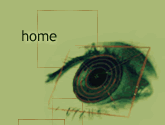|
|
|
Michael:
But from what you said earlier, it sounds like you're not optimistic
that a remedy will come along in time to restore a significant part
of your vision.
|
|
Joel:
Sure, something might turn up, at any time. With scientific breakthroughs,
you never know. And, as long as I take good care of myself and don't
get exterminated by some random twist of fate in this increasingly
hazardous world, I'm likely to see some kind of remedy available,
before I die. What I'd prefer, of course, would be an organic solution.
Genetic therapy, stem cell photoreceptor replacement, or even surgery
involving tissue. Rather than the high-tech ocular equivalent of a
wooden leg. But I'm far from confident about anything coming along
while I'm still in my vigorous middle age, instead of in my frail
dotage. The research work itself is difficult enough under the best
conditions, and the fact that retinal degeneration is given such a
lower priority in terms of funding than less rare, more lethal diseases,
is a major drag on progress.
|
|
Michael
:
Do you find that others with vision disabilities share your interest
in science in general and vision research in particular?
|
|
Joel:
I've had only a passing social acquaintance with others who have RP,
and my impressions come primarily from observing my fellow subscribers
to an Internet mailing list forum. I suppose these people constitute
a self-selected sampling of an afflicted population with a high average
level of interest in the science of retinal problems. That said, there
are differences of degree and differences of kind. All want to understand
something about why their retinas are dying and what, if anything,
can be done about it. But some are better educated than others, generally,
and accordingly the level of interest ranges from rudimentary to highly
sophisticated in terms of the details. Then there is the split, with
some overlap, between those who place their trust more in alternative
medicine‹expensive Russian and Cuban "treatments," nutritional supplements,
etc.‹and those who look primarily to mainstream science for explanations
and hope.
|
|
Michael:
Have you ever tried any of those alternative treatments?
|
|
Joel:
I haven't tried the Russian or Cuban treatments, and don't intend
to. Neither has been validated by published data based on scientific
research. The Russian approach, done only in Moscow, involved (I'm
not sure it's still offered) enhancing blood supply to the retina,
using surgery, ozone therapy to "clean out" the capillaries, and
ENKAD, an enzyme to improve certain chemical conversions required
for light reception. The Cuban method, offered at a Havana clinic,
stresses ozone and involves different procedures. Both cost thousands
of dollars, involve travel, and require repetition. Then there are
claims that a daily megadose of Vitamin A may retard the advance
of RP (one published study), that a dietary supplement called Lutein
may save the macula (central retina), and that others such as DHA
and Omega-3 fatty acids may also be of benefit. I take the Vitamin
A and the Lutein, albeit skeptically, just for insurance.
|
|






